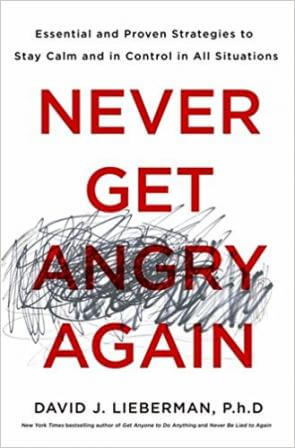
Forgiving and apologizing both give us a taste of emotional freedom. This is why we typically feel good afterward. We give an apology, and we give forgiveness. Only when we are free can we give, and this single act promotes our independence and builds our emotional immunity.
Yet before we attempt to gain forgiveness for ourselves, we must move forward with the utmost delicacy. When we’ve clearly violated the respect, trust, and rights of another, the path to forgiveness lies in restoring balance to the relationship—be it personal or professional. In balance, we find justice, and in justice, we find forgiveness.
Follow this six-phase protocol as best you can to do your part in bringing peace to your relationships and yourself.

Phase 1: Humility and Respect
If we enter the situation with anything other than complete humility, we likely won’t receive forgiveness. We must negate our ego. It’s not about us, it’s about the other person. This means we should not argue and scream our point or show up at someone’s office demanding that he listen to our side of the story. Rather, we should ask permission before we speak to him and perhaps even prior to initiating personal contact—via a note or intermediary— if the relationship is severely strained. Approaching the person with extreme deference and even reverence is a requisite for the process. We want to ask for permission before we do anything. We should leave right away if he doesn’t want to talk to us. We can try again another time. (And if we’re there only to be yelled at, that’s fine, too.) In our anger, we often do the opposite of this, and say such things as, “I drove all the way here, so you darn well better talk to me. I said I was sorry! What more do you want?” This adds fuel to the flames as we further demonstrate lack of respect. We almost don’t have to say anything, as long as the other person sees that we’re doing everything possible to make things right again.
In a situation where the person won’t even talk to us or we haven’t been in contact for some time, we might need to jumpstart the relationship and put in a great deal of effort, such as flying to where the person is, dropping off a letter of apology, and then leaving without speaking to the person. If we can make an investment—emotionally, financially, or any other way—and show genuine effort, even without immediate success, we will gain traction.
Phase 2: Be Accountable
It’s important for us to take full and complete responsibility for our actions. We must not shift the blame or make excuses—this will only exacerbate the situation. We shouldn’t say, “I got so upset because we did . . . ,” or, “I didn’t think it was a big deal to . . .” We must not blame the person for anything—his actions or ours—and we mustn’t minimize our role.
Phase 3: Sincerely Apologize
Sometimes we forget to actually say the words I’m sorry. Though these words are rarely enough, they are necessary to gaining forgiveness. Moreover, we must acknowledge that our actions hurt the other person: I’m sorry, I know I hurt you and caused you pain. We need to ensure that our sincerity comes across. An insincere apology won’t be believed; and if we’re not believed, we won’t be forgiven. If we aren’t truly sorry and remorseful, then we may repeat our behavior and put this person through more pain—in which case it might be time for us to reevaluate the relationship and ourselves.
Phase 4: Be Willing to Accept—and Even Offer—Consequences
It’s one thing to talk the talk, but things can fall apart if he thinks that we’re trying to escape unscathed. Let the other person know that you’re willing to face and accept all consequences of your actions. Putting ourselves in the hands of someone we have harmed and being answerable for our conduct and the aftermath will help to mitigate that person’s feelings of vulnerability and insecurity. Our initial act, which requires forgiveness, pulled the emotional rug right out from under him. Our behavior violated trust, which is the cornerstone of a relationship. By putting this person in charge of your fate and the entirety of the relationship, you help to reestablish a sense of security and give back, in a way, the power that you took.
Putting ourselves in the hands of someone we have harmed will help to mitigate that person’s feelings of vulnerability.
We can start by saying something like, “I know what I did was wrong. You have every right to be angry with me. I’m willing to accept the full repercussions of my actions.” We must begin to cede control with our words, or he may further castigate us as his way of setting things straight.
Phase 5: Make Things Right
If we profited in some way, then we must give back what doesn’t rightfully belong to us, in order to set things straight—whether it be money or other items. If we don’t have what we wrongfully took but we can replace it, we must make every effort to do so as soon as possible—and when feasible, we have to let the person know our plan and our progress. And remember: It’s essential to continue on this path even if he still isn’t talking to us.
Regardless of our relationship with the person, by doing what is right, despite not getting what we want (the relationship), we can prove that we are the kind of person he wants back in his life. It is important to stress here that whether or not there is something tangible to return, we are obligated to work on the character flaw or emotional issue that led to our hurtful actions. Only in this way can we authentically declare what we are now—or are working hard toward becoming: a different person who is no longer capable of such abhorrent conduct.
Phase 6: A Painless Game Plan
Let the person know that he has full power over how things proceed, that he is in control every step of the way. You suggest a game plan that moves slowly but surely toward reestablishing the relationship while ensuring that at any time, he can opt to continue, stop, or change course.
Copyright © 2018 by David Lieberman Ph.D. in Never Get Angry Again and reprinted by permission of St. Martin’s Press.
Never Get Angry Again: The Foolproof Way to Stay Calm and in Control in Any Conversation or Situation by David Lieberman, Ph.D, is now available wherever books and audiobooks are sold.
Tidak ada komentar:
Posting Komentar